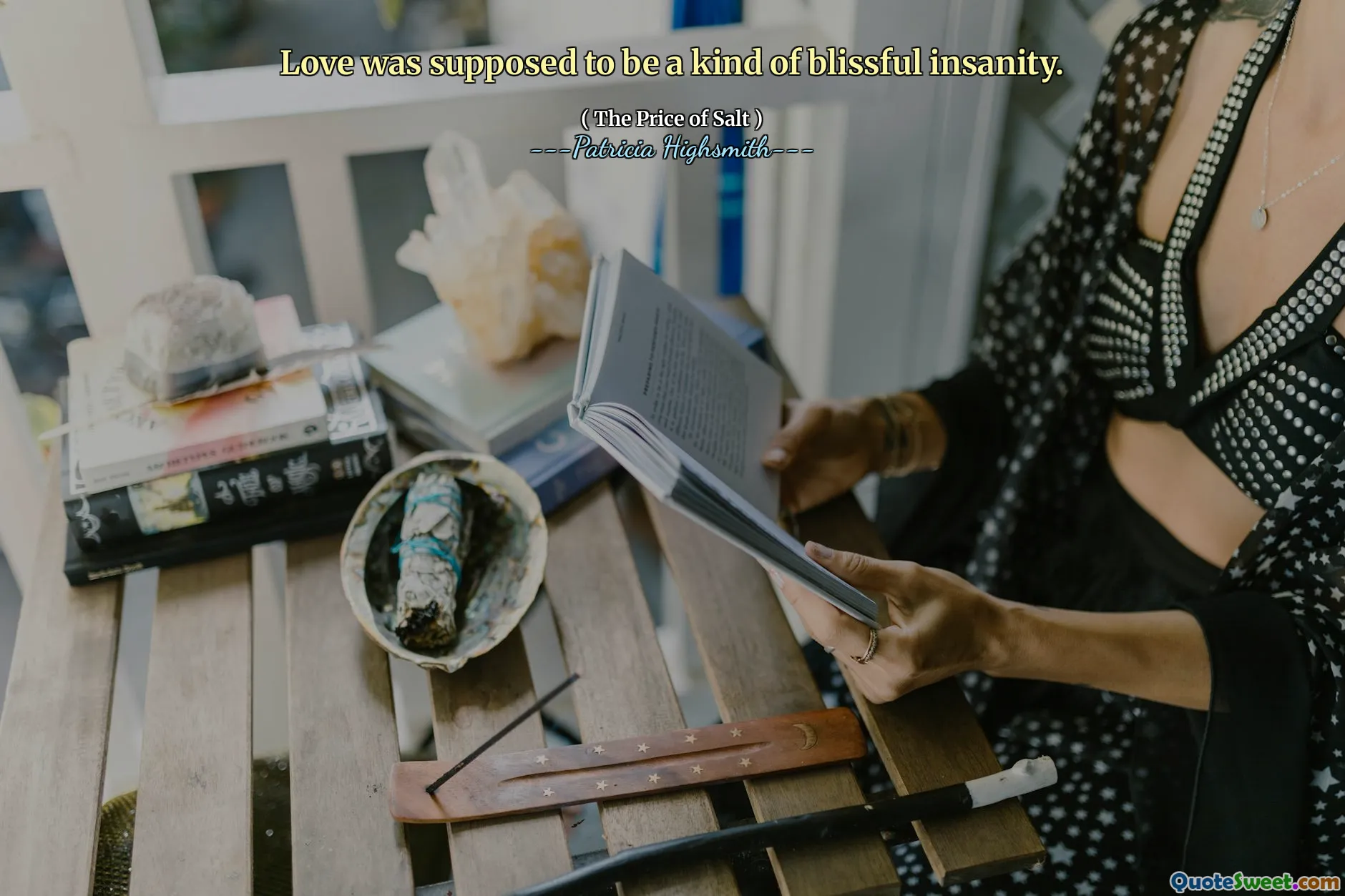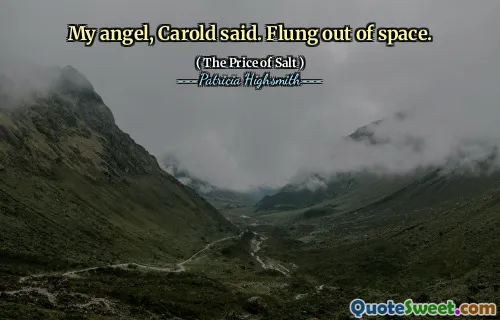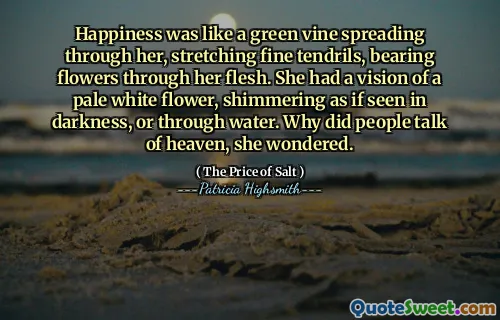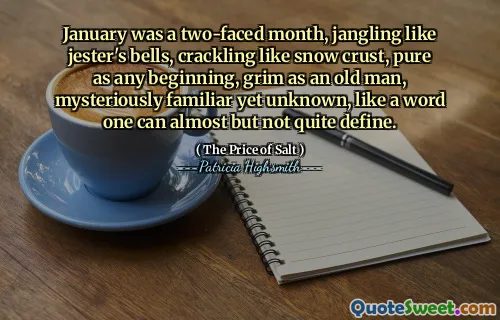
Love was supposed to be a kind of blissful insanity.
Love, often portrayed as an intoxicating and transformative experience, is at the heart of this quote from Patricia Highsmith's The Price of Salt. The phrase "blissful insanity" evokes a paradox—insanity typically connotes chaos, irrationality, and loss of control, while blissful suggests joy, contentment, and deep happiness. Indeed, love has the peculiar power to dissolve boundaries of reason and replace logic with emotion and passion. It seduces individuals into a state where the ordinary rules of thought and behavior do not seem to apply.
Reflecting on this idea, it becomes clear that Highsmith captures a fundamental truth about the experience of love: it is simultaneously euphoric and disorienting. To be "insane" in love means to embrace vulnerability, risk, and unpredictability, all in the hope of achieving a profound connection with another person that transcends everyday existence. This insanity, however, is "blissful" precisely because it offers fulfillment, joy, and a sense of exhilaration that can redefine one’s entire perception of life.
The quote also speaks to the social and personal tensions inherent in love. Love challenges the individual by shaking up established norms and priorities, often leading one to act outside conventional boundaries or rational constraints. Instead of thinking with cold calculation, lovers gamble with their hearts, opening themselves to both great joy and potential heartbreak.
In the context of The Price of Salt, a story about forbidden and unconventional love during an era of intense social scrutiny, this quote hints toward love’s ability to grant a kind of transcendence amid adversity. It underlines the theme that love liberates, despite the chaos and upheaval it creates. The chaos is not a flaw but an essential ingredient that makes love vibrant and deeply human.
Overall, this reflection on love as "blissful insanity" resonates widely because it artfully encapsulates the powerful, ambiguous nature of love. It embraces both the brilliance and the madness of such emotions, urging readers to accept the irrational beauty of love as something worth experiencing even at the risk of losing themselves in it.









